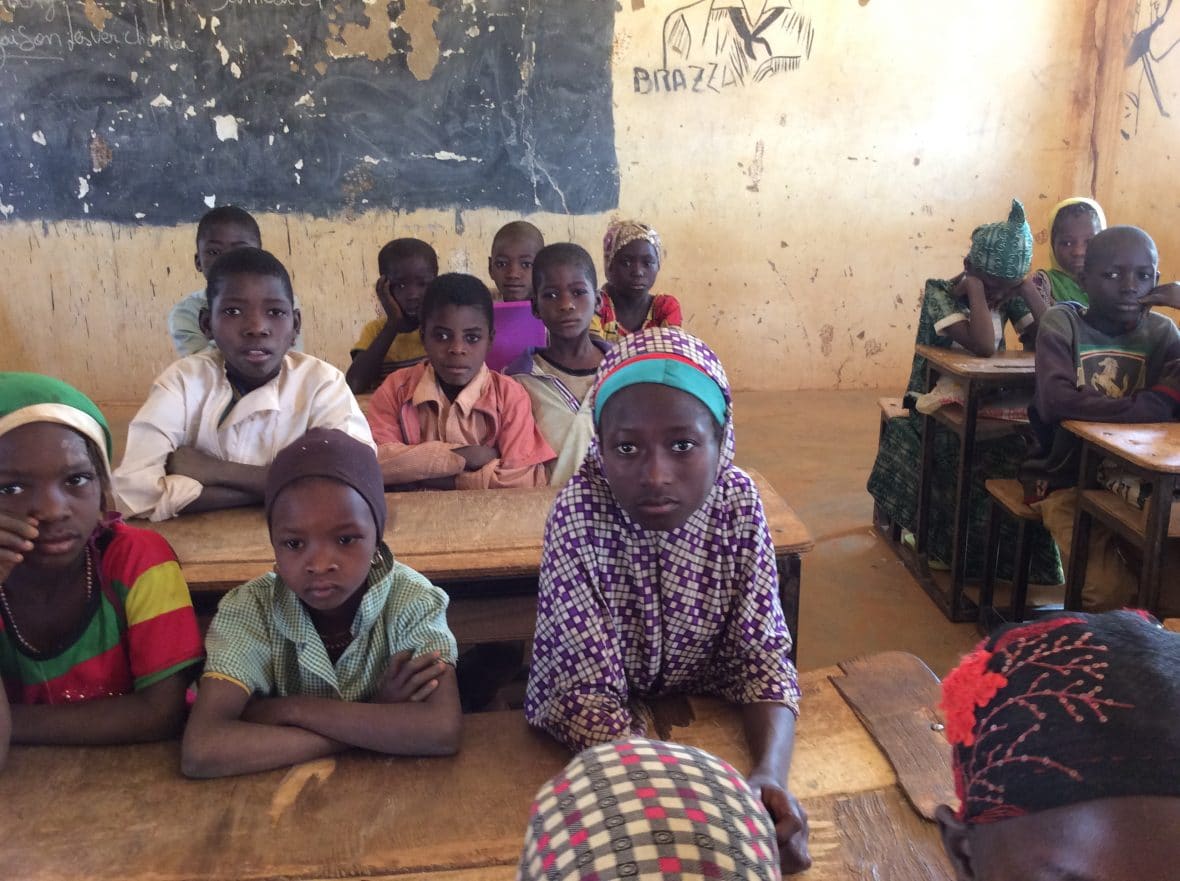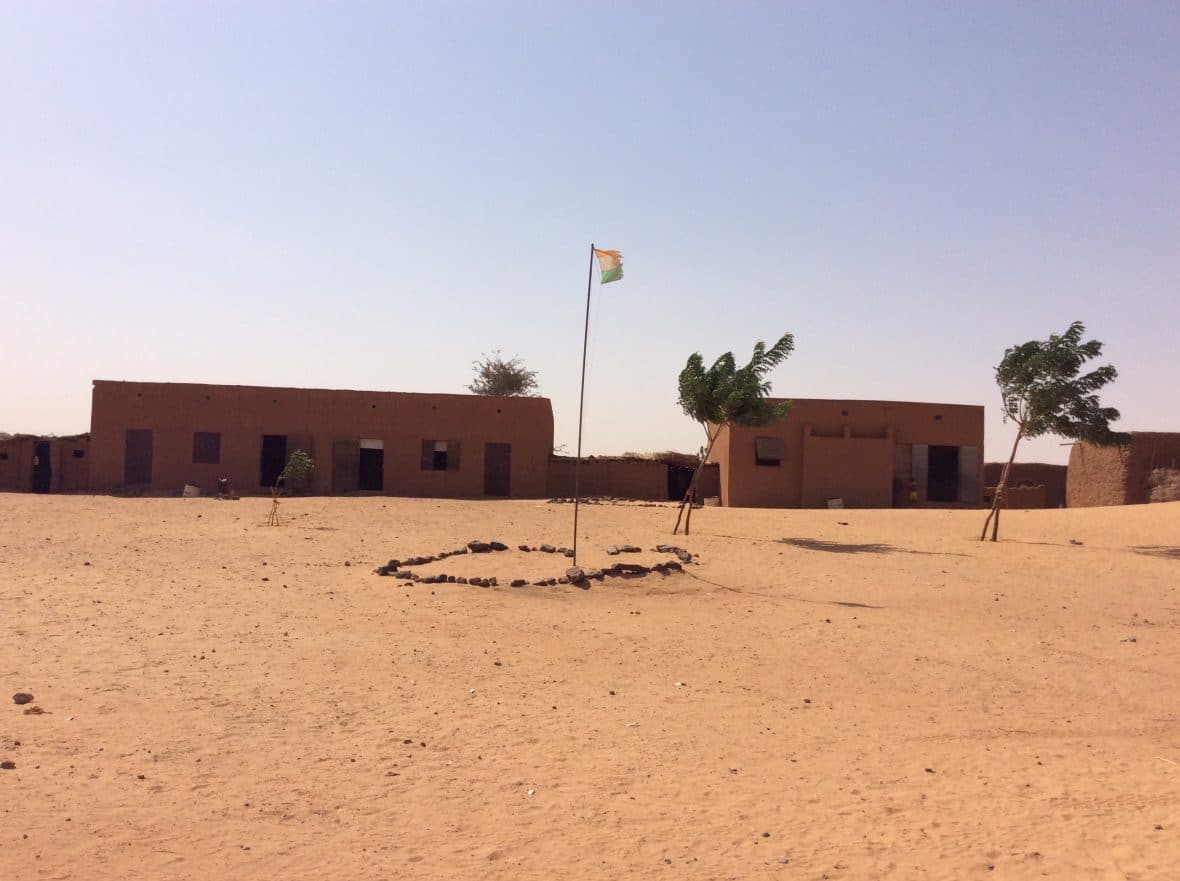News
Four ways that girls’ education can change the world
Education is one of the best tools we have to bring about equality and an end to extreme poverty.
Read MoreNiger consistently ranks last (187) on the United Nations Development Programme’s Education Index and has one of the world's lowest literacy rates. Here's a look at how we're working to close the country's education gap.
October in Niger means back to school — for some. Niger is one of the youngest countries in the world, with over 50% of its population, as of 2017, aged 14 and younger. That’s over 10.74 million Nigeriens who should be in pre-primary (ages 4-6), primary (ages 7-12), or secondary school (ages 13-19).
However, there are several barriers to education extant in this predominantly rural landlocked country that keep nearly 2.6 million children and adolescents out of the classroom. 9-year–old Bachara, a third grade student in the village of Edel in Niger’s Tahoua region, is the only child in her family still in school. Her 4 older sisters and two older brothers were forced to drop out of primary school after failing the final year exams.
Here, we take a look at the state of education in Niger, as well as how we’re working to close the country’s education gap.
We’ll get back to Bachara in a moment, but first, a few facts about education in Niger that are good to know:
In 2014, the Conference of Education Ministers of Francophone States and Governments’ evaluation program wrote of Niger: “The situation is worrying. At the end of primary school, almost 40% of students still have difficulty with basic skills that should be acquired in the early school years.”
“The situation is worrying. At the end of primary school, almost 40% of students still have difficulty with basic skills that should be acquired in the early school years.” — Conference of Education Ministers of Francophone States and Governments
At that time, 90.2% of students were below the “sufficient” threshold in language at the beginning of primary school and 91.5% of students were below the “sufficient” threshold in reading at the end of primary school.
While the language of education in Niger is French, this isn’t the mother tongue for most Nigeriens, who grow up speaking Hausa. This leaves many students, like Bachara’s siblings, behind and unable to progress. With enrollment and completion of basic schooling on the rise, we need to address the quality of teaching and the languages used in the classroom. Which brings us back to Bachara…

One solution to poverty is education. With Bachara’s 7 siblings all out of school, the hope is on her to reap the full benefits of this basic human right. Hers is one of the 40 schools supported by Concern since 2013, with funding from the Turing Foundation. This particular school was built in 1997, and houses 280 students in 6 classrooms — 110 of them are girls. In Bachara’s classroom, she is one of 28 girls in her class of 65.
When Concern began to shift its focus on access to education to the quality of education, we implemented a mother-tongue program to mitigate the language barriers in the classroom. The model uses a transitional design that begins exclusively in Hausa, and by second grade starts to introduce French. By fourth grade, students will be speaking — and understanding — French.
At the start of this program, almost all of the 787 students we originally worked with (96–100%) in grades 2 and 3 were incapable of reading a single word in French or Hausa. At the end, while our group of students dropped to 547 over the course of 4 years, the literacy rates improved dramatically: Only 25–34% of students were still unable to read a word of French of Hausa.

Tahoua is a largely rural, arid region of predominantly small-scale farmers who are dependent on rain-fed subsistence agriculture. The poorest families in Tahoua, like Bachara’s, live in a permanent state of chronic poverty due to erratic rainfall, pest invasion, advancing desertification, and inadequate responses to climate change.
Every morning, Bachara helps her mother prepare the morning meal and fetch water from the well before she walks to school through the hot, dry desert. But, for her, the trek is worth it.
During a Concern visit, a proud Bachara said, “Thanks to Concern’s support I can read and write, as teaching through Haousa was introduced in Grade 1.”
She adds that she dreams of becoming a teacher one day. If this happens, the next generation of Nigerien students should be in good hands.